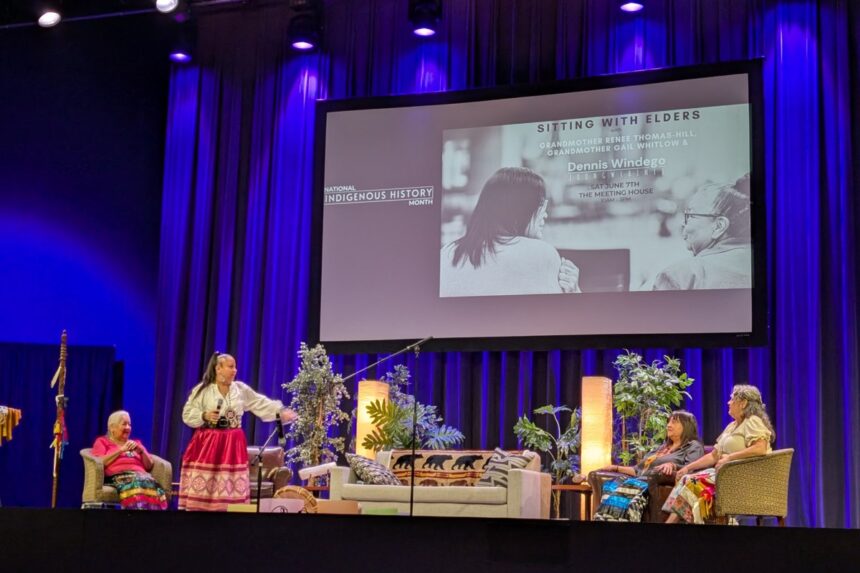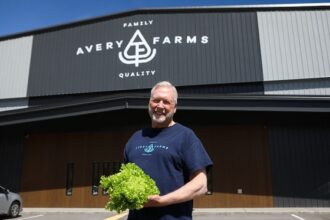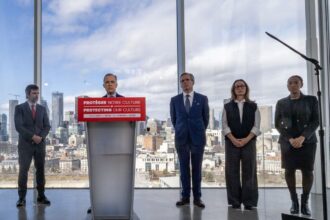In the heart of Oakville, a revolutionary indigenous storytelling initiative is quietly transforming how Canadians connect with First Nations heritage and wisdom. The Indigenous Story Studio, founded by Anishinaabe storyteller Melissa Twance, has emerged as a vital cultural bridge in a community where indigenous voices have historically been underrepresented.
“Stories aren’t just entertainment—they’re vessels of knowledge that have sustained our communities for thousands of years,” explains Twance, whose vision for the nonprofit took shape during the isolation of the pandemic. “When I realized how disconnected many indigenous youth felt from their heritage, especially in suburban settings like Oakville, I knew we needed a dedicated space for these traditions to thrive.”
The studio, which operates from a converted warehouse near Oakville’s downtown core, offers a diverse range of programming that extends far beyond conventional storytelling. Their flagship initiative, “Ancestors’ Voices,” brings elders from various First Nations communities to share oral histories with mixed audiences of indigenous and non-indigenous participants. The results have been remarkable, with attendance growing from just twelve people at their first session to regularly sold-out events with waiting lists.
What distinguishes the Indigenous Story Studio from similar cultural organizations is its deliberate focus on contemporary applications of traditional knowledge. Their Canada News partnership with local schools has integrated indigenous perspectives into mainstream education, while their digital storytelling workshops equip indigenous youth with modern tools to document and share their communities’ experiences.
“We’re not just preserving stories—we’re creating space for new ones to emerge,” says program director Jamie Cardinal. “When an indigenous teenager uses digital media to explore their identity while being grounded in traditional knowledge, that’s where the real magic happens.”
The nonprofit has gained significant attention from CO24 News outlets across Ontario, particularly for its economic empowerment programs. Their artisan marketplace provides sustainable income for indigenous craftspeople, while entrepreneurship mentoring has helped launch several indigenous-owned businesses in the region.
Funding has come from diverse sources, including provincial arts grants, corporate sponsorships, and a dedicated community of individual donors. This financial stability has allowed the organization to offer many programs on a pay-what-you-can basis, ensuring accessibility regardless of economic means.
Community impact extends beyond cultural programming. The studio has become an important voice in local CO24 Politics, advocating for indigenous representation in municipal decision-making and consulting on land acknowledgment practices for regional institutions.
“What happens here ripples outward,” notes Halton Region councillor Patricia Thompson. “The studio has fundamentally changed conversations about reconciliation in our community. It’s no longer abstract—there’s now a physical space where relationship-building happens daily.”
Looking ahead, Twance envisions expanding their model to other suburban communities where indigenous populations may feel isolated from cultural resources typically concentrated in urban centers or on reserves.
“Our stories have always been about survival, adaptation, and finding home wherever we are,” she reflects. “This studio embodies that tradition—creating cultural continuity in spaces where many wouldn’t expect to find it.”
As Canada continues its complex journey toward reconciliation, organizations like the Indigenous Story Studio demonstrate how cultural revitalization can happen at the community level, one story at a time. The question remains: how might other communities follow Oakville’s example in creating spaces where indigenous wisdom isn’t just preserved but actively cultivated for future generations?










